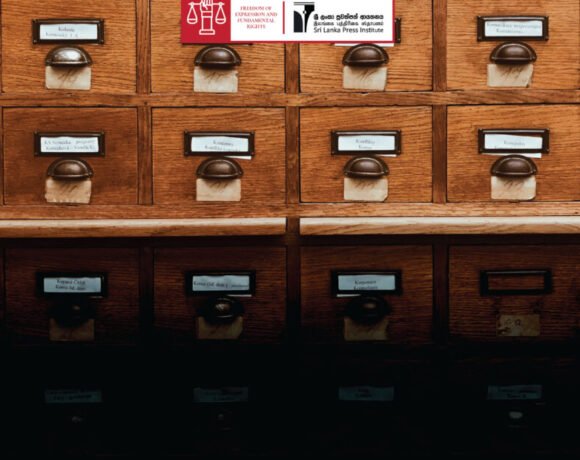
A Political Morality that does not Respect the Fundamental Law of the Land?
C. J. Amarathunga
Whether a dual citizen should be allowed to be a country’s legislature is a debatable question. While some countries are not particular on the point, others point against such an allowance as there is a potential conflict of interest that arises from the duality in question. Ahead of the presidential election in 2019, his being a dual citizen of Sri Lanka and the US was an obstacle for Gotabhaya Rajapaksa in signing up for his candidature. Rajapaksa had to duly revoke his US citizenship before furthering his political ambition. Later, the debate of dual citizenship re-emerged in 2021 with the appointment of Basil Rajapaksa – a citizen of Sri Lanka and the US – as a Member of Parliament and as the country’s Minister of Finance.
Basil Rajapaksa’s appointment to parliament took place following the 20th Amendment to the Sri Lankan constitution which removed legal hindrances that barred dual citizens from being parliamentarians. However, due to several other reasons, Rajapaksa’s appointment continued to be a matter of debate. On one hand, Rajapaksa was one of the most influential members of arguably the most powerful political family in Sri Lanka at present. Some assumed that Basil Rajapaksa’s arrival would solve Sri Lanka’s current financial crisis as he – in a previous appointment – had played a significant role in the country’s economic and political decision-making. On the other hand, the seemingly nepotistic character of the appointment raised a question of ethical appropriateness. Previously, Rajapaksa he has been in the House from 2007 to 2014. His maiden entry to parliament in 2007 was through the National List. In the 2010 General Election, he contested from the Gampaha district and won handsomely. The 19th Amendment to the Constitution passed in 2015 effectively barred dual citizens from being elected as legislators. This disqualified Rajapaksa from seeking nominations. As a result, Rajapaksa didn’t contest elections in 2015 and 2020.
In 2020, when the prevailing government presented the 20th Amendment in parliament, one of its focal points was to revoke legal impediments that prevented dual citizens from contesting elections. However, the revoking of this law faced opposition and public dissent which included different views on the matter expressed by a group within the government’s own ranks. Despite these pushbacks, the government passed the 20th Amendment after which Rajapaksa entered parliament in 2021. However, the ethical issue of this appointment persists and continues to interest public forums.
On the constitutional front, one camp points out that by the conditions that prevailed ahead of the 2020 General Elections, Rajapaksa was not eligible to contest the election. Therefore, they question the reasonableness of Rajapaksa’s being made eligible to represent a parliament which reflects the people’s mandate expressed at the 2020 election. Another group has pointed out incongruities between the elite appointment and the country’s constitution. The constitution and supreme court have acknowledged that universal franchise is a key part of sovereignty. Members of parliament are elected by popular vote: a mechanism that is provided by the constitution. Article 99 of the constitution defines the National List, and Article 101 clarifies how members are to be elected under that list. Accordingly, only persons whose names appear in the list submitted for a district by the party can be appointed as a National List MP.
Even though the provisions of the constitution are defined as above, in the past, political parties have violated those provisions. In the 2004 election, Ratnasiri Wickremanayake, who was originally not on any list, was elected to Parliament. In 2006, after the assassination of Lakshman Kadirgamar, Dallas Alahapperuma was likewise appointed. The same practice was followed in the appointments of Champika Ranawaka (2007), Vinayagamuurthy Muralitharan (2008), Field Marshal Sarath Fonseka (2016) and, most recently, Saman Rathnapriya (2019). The question, then, must be recast as to how in all these instances the constitution was allowed to be violated.
The above appointments are given legal protection under Article 64 (5) of the Sri Lanka Parliamentary Elections Act No. 1 of 1981. This Article states that any party member may be elected to Parliament from the National List. This section of the Elections Act covers all political parties that get elected to Parliament from the National List. The Center for Policy Alternatives and several lawyers have pointed out this section of the Parliamentary Elections Act to be in conflict with the constitution. How this election bill was passed raises further concerns. The government prevailing at the time had introduced the bill to parliament as an emergency bill. The supreme court should examine and give a decision on an emergency bill within a day leaving no time for the public to study and comment on it. The Act had been passed based on such a court decision and without any election in sight.
According to the law of the land, the judiciary does not have the power to inquire into a bill once it has been passed. Politicians seem to enjoy this to their advantage and deliberately abuse this law. However, the general acceptance is that every law must be subjected to the fundamental law of the land while respect for that fundamental law is also an important political ethic.
நாட்டின் அடிப்படை சட்டத்தை மதிக்காத அரசியல் நீதிநெறி எங்கே செல்கின்றது?
රටේ මූලික නීතියට ගරු නොකරන දේශපාලන සදාචාරය කොයිබටද ?








